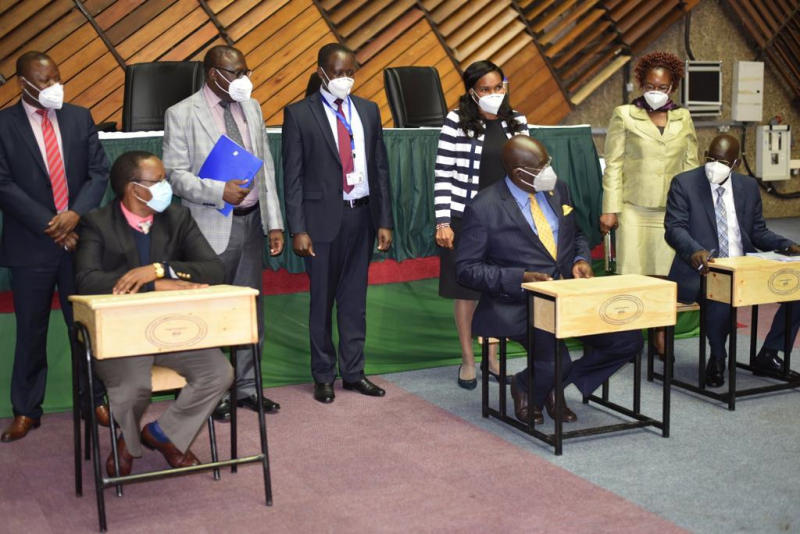×
The Standard e-Paper
Fearless, Trusted News

Education Cabinet Secretary George Magoha (centre) with Basic Education PS Belio Kipsang (right) and Interior PS Karanja Kibicho try out the new desks expected to be used in schools. [Courtesy]
Schools have six weeks to prepare for reopening as plans to address the social distancing headache in primary and secondary institutions kicks off Monday.